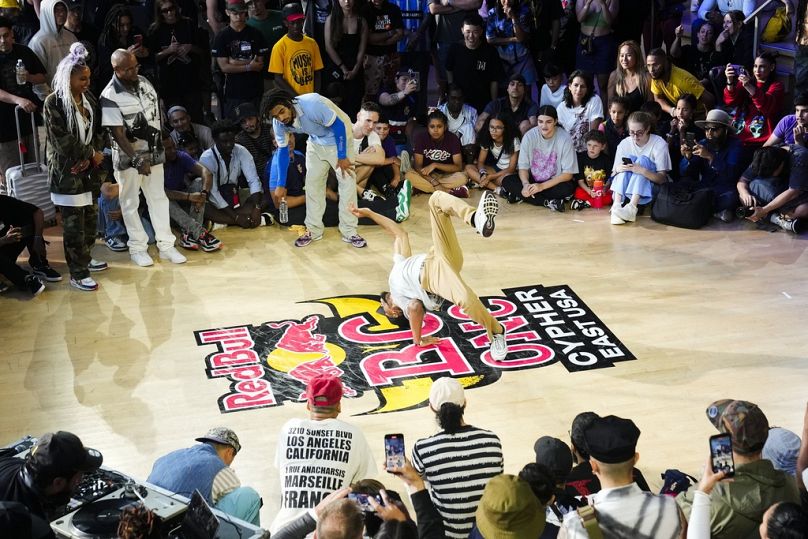The atmosphere heats up in Châtelet, a hotbed of hip-hop culture in Paris, which has prepared itself to celebrate the arrival of the dance at the Olympics.
One half a century after it first appeared on the streets of New York breakdancing, or breaking, makes its Olympic debut this Friday in Paris.
In Châtelet this week, while waiting for the breaking events to begin, hundreds of people are attended breakdance battles.
"The appearance of breaking at the Olympic Games will put the spotlight on a discipline that is both surprising and very physical. In it there are some really beautiful moves, but the most important thing for me creativity," explains Bboy Diego, a dancer who has come from La Rochelle to take part in the event.
Born in New York's Bronx district in the 1970s, breakdancing has enjoyed a meteoric rise all over the world.
Today, the world's best dancers regularly compete in international tournaments but for some members of the movement, competition doesn't fully represent the values of breaking.
"Breaking at the Games is cool because you get noticed as a sport, but it's first and foremost an art. Originally, it took place in the street and anyone could participate. For me, the fundamental values are sharing and having fun, not competition", explains Bgirl Vibe, a 16 year-old breakdancer present in Paris.
A new Olympic sport
"I've been 40 years in hip hop, I come from the culture, but now I represent sport. Sport or culture, it doesn't matter. It's very good that we are in sports, because it's a good promotion for the breaking", says OG SAMSON, a hip hop figure who has come from Slovenia to coach several athletes taking part in the Olympic Games.
Sixteen male and sixteen female dancers will compete in battles lasting around one minute each, this Friday and Saturday in an arena built on the Place de la Concorde in the heart of Paris. Two of them will win breaking's first breaking gold medals in Olympic history.
After skateboarding and surfing in Tokyo, breaking has been chosen by the IOC in a bid to adapt contemporary sporting practices around the world for the Games.
Considered an additional sport in Paris, the discipline was not selected for Los Angeles in 2028.
Dance or sport?
Dance has been the subject of much research over the centuries, from Darwin to neuroscientists who recently proved its benefits for the brain. According to scientists, dancing helps people discover their bodies, explore space and create social bonds.
"In all of our projects, we can see that a bond is created between the groups. People don't know each other, and suddenly there's a unity, a union through dance", explains Vincent Delétang, one of the choreographers involved in the exhibition.
In an exhibition called 'Danser', set up to promote the event in Paris for the Games, families pass through several spaces named "Walking", "Turning", "Jumping", then "Meeting" at a ball every half-hour.
The exhibition is more about movement than image. There are no mirrors, and technology transforms visitors into avatars, to work on movement and letting go.
"Dance is really one of the first forms of expression to appear at the same time as human beings. Dance appeared as part of religious celebrations, entertainment and the desire to celebrate oneself... We can see it right now at the Olympic Games, when everyone claps their hands at the same time to support a sporting movement, or when an Ola is launched in the stadium", Delétang said.
"Children's motor skills come into play right from birth. It's when we grow up that inhibitions come into play, because it's a question of image. But little by little we can put that aside," comments Delétang, who says she began dancing at family parties before enrolling in dance as a teenager and making contemporary dance his profession.
The "Danser" exhibition is on show at the Cité des Sciences et de l'Industrie, Paris, until December.












